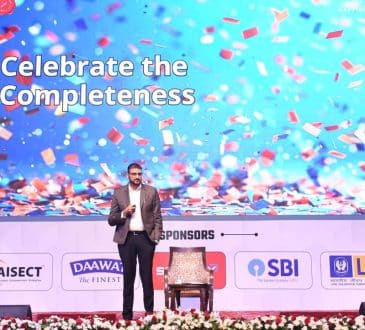10 Steps to Improve the Development and Retention of Your Diverse Workforce

Over the past few years, much attention has been paid to the importance of attracting, developing and retaining diverse talent. This focus has increased exponentially given the war for talent, the mass exodus of talent due to the “Great Resignation”, and the changing demographics as America moves ever closer to a “majority minority” country.
More often than not, many of the actions taken by organizations has been focused on the “recruitment” of diverse talent to build a talent pipeline. While recruitment is essential, it is not enough to win the war on talent. If organizations are to move the needle on the development and retention of their diverse associates, the effort needs to be intentional and deliberate. A “cookie cutter” approach, or a “one-size-fits-all” playbook will not yield the same result, particularly if your organizational culture is lacking in inclusive behaviors.
While not an exhaustive list, below are ten actions your organization can take to enhance the development, retention and ultimately the success, of your diverse associates:
- Proper On-boarding and Training: This is the most impactful area to address in either moving a diverse associate into a new role or bringing a diverse candidate into the organization. If not well planned, thorough, and deliberate, this sets a weak foundation for expected performance and greatly reduces the likelihood of retention.
- Job Shadowing with High Performers: In most organizations, to be successful requires being aware of and having access to key people and resources within the organization. Likewise, to not have to reinvent the wheel, it’s important to be able to visualize best practices. Too often, these are not easily determined by those new to the role or new to the organization. When diverse professionals spend time job-shadowing high performers, they receive exposure to best practices and resources to help them succeed in their new roles.
- Clearly Defined Role Expectations/Early Performance Feedback: To avoid misunderstandings regarding role expectations, it is strongly suggested that such expectations be covered in detail. Ideally, to minimize subjectivity in evaluating performance, many of these expectations will be objective in nature and time bound. Additionally, organizations that enjoy high diverse retention provide feedback early and often to allow for awareness of gaps, and the opportunity to course correct.
- Access to Leaders of Similar Diversity/Gender: Research has determined that when people see others like themselves in key roles, they are inspired and thus “aspire” to reach such levels. Additionally, there is a trust that exists with like individuals that allows for a deeper level of mentoring and an acceptance of constructive feedback. This can be done on an individual basis or as part of an employee resource group (ERG). While such interaction requires a willingness on behalf of the diverse leaders in your organization to participate, for those who do, they will no doubt find engaging in such a manner rewarding.
- Leverage Employee Resource Groups on Business Matters: Just having ERGs does not, by itself, improve DE&I retention. Companies with high DE&I retention utilize these groups to help solve business challenges, uncover new products or offerings, and gain consumer insights. As a result, ERG members feel more engaged and aligned with the company and are able to add greater value. Furthermore, such projects will provide them with visibility to senior leaders and expose them to other business functions that will further enhance their development.
- Implement Structured Programs Targeted for High Potential Diverse Associates: Over the past ten years, to increase the number of women in their senior ranks, many organizations created special development programs for women. These programs included discussions and access to senior leaders, additional skills training, coaching, and other opportunities to expand their learning. As a result, these women were better positioned for advancement due to the relationships developed, the information they were exposed to, and the new perspectives they gained. A similar approach for diverse high potential associates, if supported by the organization, should yield similar, if not greater results.
- Encourage Participation in Outside Professional Organizations: The reality is most organizations don’t have the infrastructure in place to offer separate training, coaching, or mentoring for their diverse associates. The cost of providing individual coaching for diverse professionals is prohibitive, even though diverse candidates do have unique needs. Encouraging and supporting participation in outside organizations (i.e., Catalyst, Network for Executive Women (N.E.W.), National Black MBA Association (NBMBAA), Prospanica, etc.) allows for personal and professional development that they might not otherwise receive internally.
- Provide a “Safe” Environment to Share Concerns/Ask Questions: For fear of being perceived negatively, many diverse professionals have been culturally conditioned to refrain from asking for help, asking questions, or speaking honestly about their work experience. Organizations that enjoy a high level of retention of diverse professionals are intentional about providing a safe environment in which to ask questions and voice concerns.
- Inspect what you Expect: To gauge progress, it is essential that on a frequent basis your Human Resources leaders calibrates and reports out on the performance and advancement of your diverse associates. I suggest this be done quarterly. Doing so will help identify not only those who are performing well, but those who may be struggling, which allows for course correction. Additionally, by designating associates by their “readiness” helps create a bench of “ready now” talent and can identify gaps or challenges to be addressed.
- Accountability Is Key: In the business world, those things that get measured, get done. This statement does not intend to imply “quota-based” decisions, but rather suggests that just as a leader would have to explain a poor P&L performance (with actions to address the poor performance), the same rigor should be given to the recruitment, development, and promotion of your diverse associates. Nothing will move the needle faster than leaders understanding that THEY are as responsible for the organization’s DE&I goals as they are for their other key metrics.
Written by Keith R. Wyche.
Bring the best of the CEOWORLD magazine's global journalism to audiences in the United States and around the world. - Add CEOWORLD magazine to your Google News feed.
Follow CEOWORLD magazine headlines on: Google News, LinkedIn, Twitter, and Facebook.
Copyright 2025 The CEOWORLD magazine. All rights reserved. This material (and any extract from it) must not be copied, redistributed or placed on any website, without CEOWORLD magazine' prior written consent. For media queries, please contact: info@ceoworld.biz








